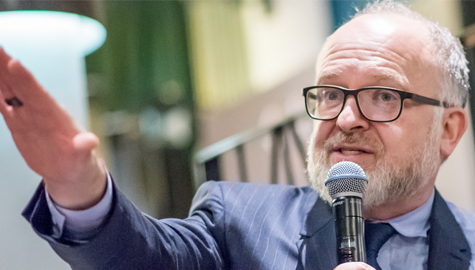
Slowing the biological clock with HealthTech innovations
Can cutting-edge innovations be used to impede the effects of ageing? We find out more.
Ageing is the most common and largest risk contributor for many chronic diseases, including Alzheimer’s disease, diabetes and severity of complications due to COVID-19. If we can slow or even reverse aspects of ageing, we can keep people healthier for longer.
“We’ve been trying to stop ageing for 3,000 years, and for most of that time, it has been science fiction,” says Dr Brian Kennedy, distinguished professor of biochemistry and physiology at National University of Singapore (NUS) and director of the National University Health System (NUHS) Centre for Healthy Ageing. “But I think that this generation is when it’s going to happen.”
Prevention is better than cure
To overcome the challenges brought about by ageing, it makes more financial sense to focus on health preservation instead of trying belatedly to rectify diseases.
“Right now, medical and societal costs are going up because we are not doing healthcare; we’re doing sick-care,” stresses Dr Kennedy. “We need to work with people throughout their lives and try to keep them healthy — because that’s going to be a whole lot easier.”
Private companies are starting to take note as well. Wearables such as Fitbit, Apple Watch and biosensors can help keep a literal pulse on your health in non-invasive ways. The data collected can then provide your physician with medical insights, potentially increasing the chances for disease prevention and early intervention.
A wealth of solutions to combat ageing
Is it possible that prolonged health spans could be just a pill away? A certain type of drug, widely used to treat type-2 diabetes, has been found to increase the mean lifespan of mice by as much as 40 per cent. It has also demonstrated protective effects against several ageing-related diseases in humans.
Routine and sustainable replacement of aged body parts may soon be within reach too. Muscles, tissues and organs have been grown and harvested through stem-cell research, while scientists have also successfully designed a functional, beating silicone heart using a 3D mould.
Gene-editing techniques such as CRISPR technology hold the potential to extend health spans on a molecular level. It has been used, in a landmark trial, to fix a genetic defect in human embryos that can cause serious heart problems. Combined with other techniques, CRISPR could point the way to cutting out other disease-causing genes and essentially halt the transmission of hereditary diseases.
Keeping an open and informed mind
Longevity is a relatively new field of study. “The sector simply did not exist, five to ten years ago. And now it’s a thriving one,” Dr Kennedy explains. The proliferation of options in the market — some bordering on pseudoscience — can make it hard for the medically untrained to make an informed decision.
“People who are interested in this field and how it could benefit them should actively engage in trying to understand the topic and looking at the options that are available to keep them healthy,” he advises.
Longevity clinics have since sprung up worldwide and are medically-equipped to provide holistic assessments and tailored advice. After conducting a full medical check-up which measures biomarkers of ageing, these clinics will provide recommendations for lifestyle choices, supplements and more to help reverse the ageing process.
“We are now at that point where almost everybody in this field thinks it’s possible to slow ageing,” says Dr Kennedy. “Whether we can change the maximum lifespan and break through the ageing barrier remains an open question.”
Receive relevant and timely health insights of your body through Pulse by Prudential, an AI-powered app designed to help you stay healthy. Packed with multiple features such as Healthcheck and Symptom Checker, Pulse is more than an app — it’s your health assistant. Download it here today.


